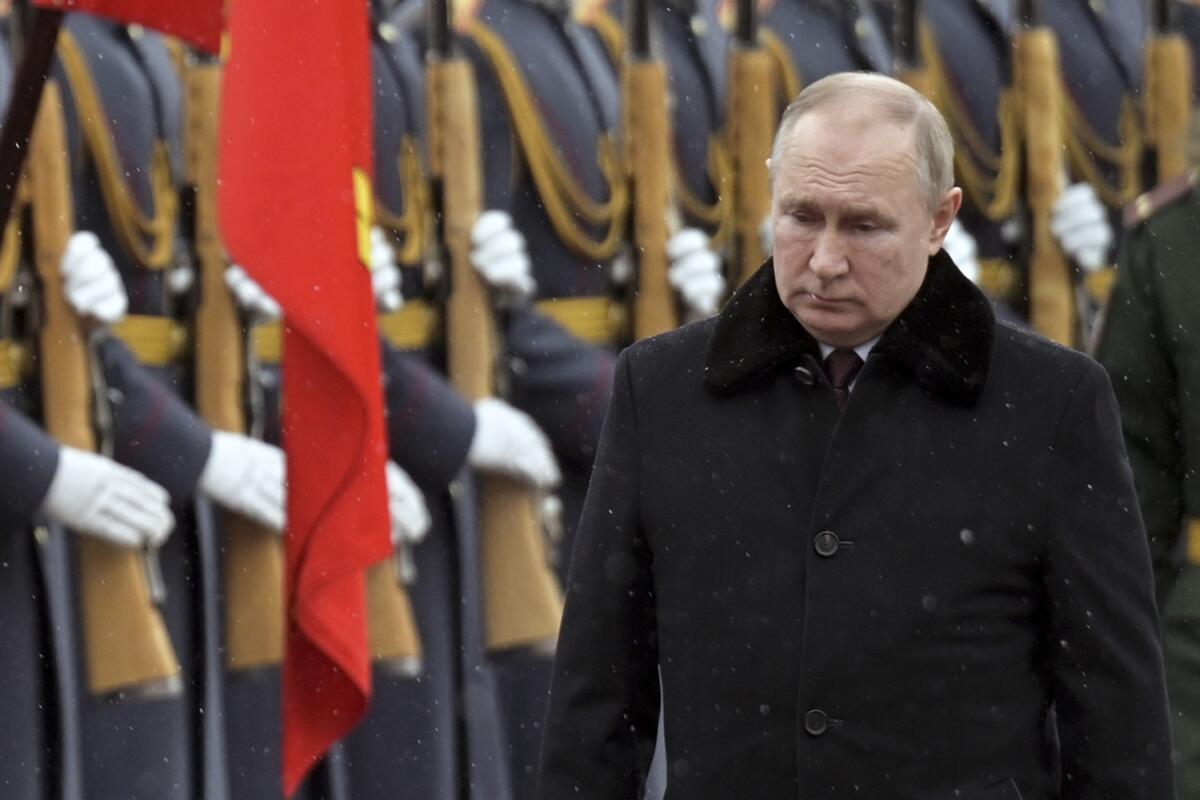U.S. Treasury prohibits investors from buying Russian debt

The U.S. Treasury stepped up financial sanctions on Russia by barring investors from buying the countryâs debt in the secondary market, bringing trading activity almost to a halt on Tuesday as investors scrambled to understand the new restrictions.
The updated guidance means U.S. firms can hold or sell Russian debt but canât purchase it, according to a spokesperson for Treasuryâs Office of Foreign Assets Control. The rules apply to both corporate and sovereign debt as well as equities.
Banks trading Russian corporate and sovereign bonds have already faced criticism in the U.S. Sen. Elizabeth Warren (D-Mass.) has blasted them for undermining sanctions and has called out market makers JPMorgan Chase & Co. and Goldman Sachs Group Inc. for purchasing and making recommendations to clients.
Both are being pressed to hand over extensive information on clients trading Russian debt.
The new ban comes as Russia separately tries to avoid a sovereign default by finding a way around sanctions that are preventing it from getting money to bondholders.
A sanctions regime aimed at putting pressure on Russiaâs wealthiest citizens has put a spotlight on the global mega-yacht trade.
Two payments of about $100 million in total due May 27 are stuck at Euroclear Bank, according to a person familiar with the matter. The funds were transferred from Russiaâs National Settlement Depository.
The blockage means Russia is now deep into a 30-day grace period, at the end of which it could be declared in default. Moscow argues, however, that it fulfilled its obligations when it sent the money to the NSD on May 20.
The latest U.S. ban will come as a further blow to funds holding Russian bonds, as it reduces the number of potential buyers of the assets and undermines any remaining value. The update, which was issued on the Office of Foreign Assets Controlâs website late Monday, caught investors by surprise, prompting many to contact lawyers to determine what the new rules entail, said people familiar with the matter.
Russiaâs bonds fell about 3 cents on the dollar Tuesday as banks and brokers marked down their holdings.
âMarkets usually evaporate almost immediately but itâs always good policy to allow wind down for at least some time,â said Brian OâToole, a former senior advisor at the Office of Foreign Assets Control. âProbably no one will buy the debt but itâs still good policy to let folks offload if they can rather than sticking them immediately with a worthless asset.â
Under the new policy, U.S. market participants are prohibited from purchasing both new and existing debt and equity securities issued by a Russian Federation entity. But investors can still sell such assets, or facilitate their sale, to non-U.S. residents and may continue to hold them.
Bloomberg writers Giulia Morpurgo and Anya Andrianova contributed to this report.
More to Read
Inside the business of entertainment
The Wide Shot brings you news, analysis and insights on everything from streaming wars to production â and what it all means for the future.
You may occasionally receive promotional content from the Los Angeles Times.











